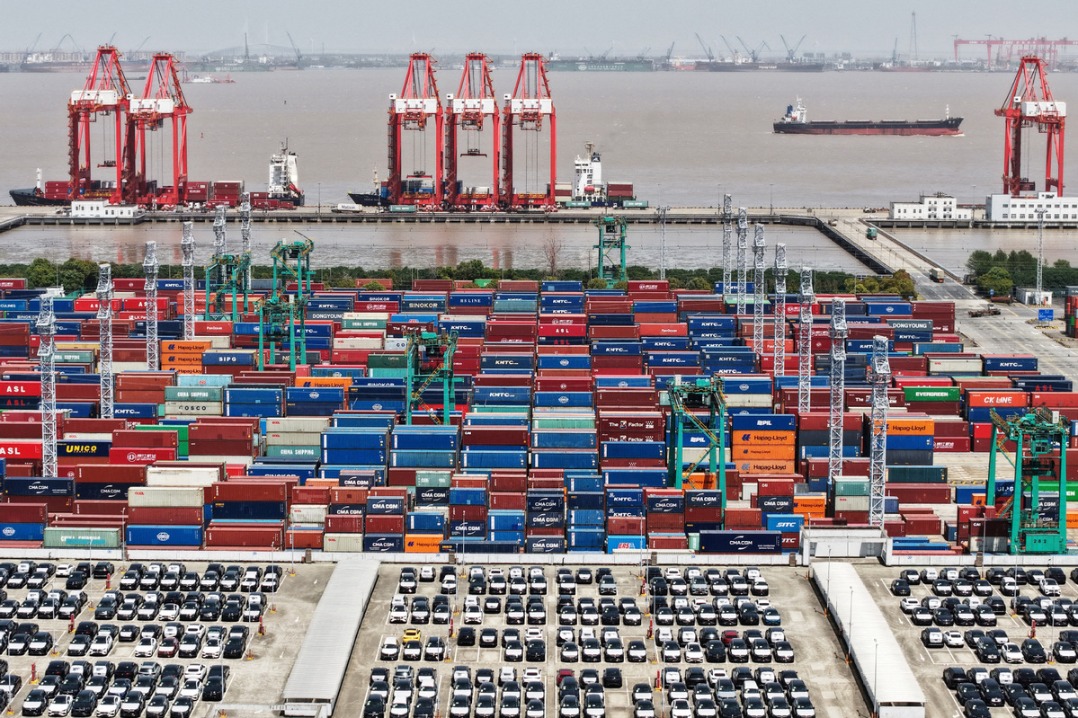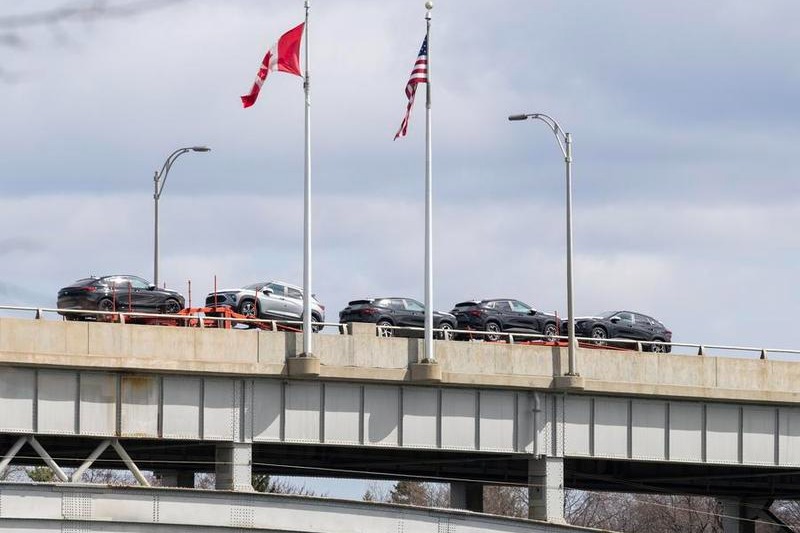'Distrust' of US pushes Canada to others

Tensions between Canada and the US, since the Donald Trump administration came to power, are pushing the former to explore closer ties with other partners and diversify its trade relations, experts say.
"Canada is never top of the mind for American federal politicians," said Ron Stagg, a professor of history at Toronto Metropolitan University.
"But now the Trump government is very much ignoring Canadian leadership, except when threatened with tariffs, or when there is a threat to impose a surcharge on electricity sent to US northern states," Stagg told China Daily.
The delay in auto tariffs, he added, likely had more to do with pressure from auto executives and a declining stock market than diplomacy. "Trump seems to respect Mark Carney more than his predecessor Justin Trudeau," he said.
"All the Canadian parties are taking a stand against American bullying," Stagg said, noting that federal and provincial governments are preparing financial support for companies and workers in case the tariffs take effect.
"It will take years to reestablish the kind of relationship that existed, and there will be an ongoing level of mistrust even then," he said.
This erosion of trust is pushing Canada toward Europe. "The interest in moving closer to the European Union is definitely a result of the hostile trade moves of the Trump government," he said.
Stagg added, "There has been talk for years about the need to diversify trade away from the United States, but the current situation has increased government interest, both in the European Union and in the trans-Pacific trade arrangement."
He noted that Carney's experience at the Bank of England during Brexit gives him additional insights into the European economy.
"Some commentators have even suggested that Canada could join the European Union, but this is unlikely," he said.
'Hard to pivot'
"It will be hard for the government to get Canadian business, so used to easy trade with the United States, to pivot en masse," Stagg said.
While agricultural exports and raw materials may find new markets, "the industrial sector of the economy will have a more difficult time," he noted, particularly given Canada's limited pipeline and energy infrastructure.
Experts noted that the United States' reduction in aid to Ukraine has prompted Canada to further align its security and foreign policies with its European allies.
"Canadian foreign policy is based on Canadian interests," said Lubomyr Luciuk, a professor of political science and economics at the Royal Military College of Canada.
"Canadian interests are to have a stable, peaceful, rules-based international order," he told China Daily.
For Luciuk, US President Donald Trump's shift on Ukraine represents not just a change in US policy but a symbolic weakening of Western unity.
Canada, he said, increasingly finds itself in closer alignment with European countries such as the United Kingdom and France, who have continued to provide military and diplomatic backing to Kyiv.
"We don't want the world to give up on the ideals of the West," Luciuk said. "Unfortunately, some of the recent developments may have undermined that."
The shift in defense thinking is not limited to foreign deployments. "Canada has reacted to talk of making the country the 51st state by promising to build up our northern defenses," Stagg said.
However, despite these signals, Stagg said Canada has not yet clearly articulated a new foreign policy doctrine.
"The current isolationist trend in the US, combined with its aggressive stance toward Greenland, Panama and Canada, has Canada looking for friends elsewhere," he said.
Stagg expects more friction, particularly when the Canada-Mexico-US trade agreement comes up for review in 2026.
A more amicable US government could help, but "a residual distrust will remain," he said. By then, "Canada will have made some moves to reorient trade and foreign policy".
































